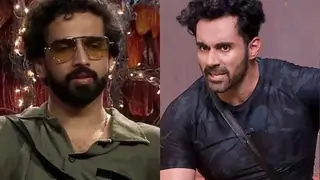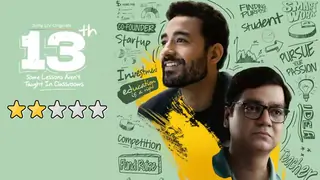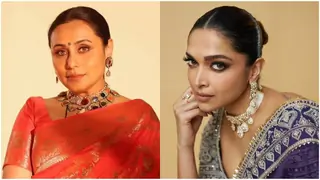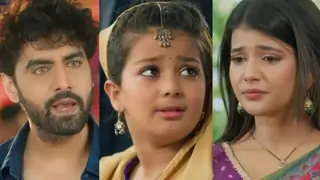The new-age listener wants change in music'
Musicians Karsh Kale, Tapan and Gaurav of Midival Punditz get talking about collaborating for Shekhar Kapur's new musical and composing for the upcoming Soha Ali Khan starrer " Soundtrack".
How did Karsh Kale and Midival Punditz get together in the first place?
Gaurav Raina: We actually found each other in 1999, through Talvin Singh, who was hosting his Anokha gig in London. After that, we started working with each other on our respective albums and then the tours started.
Do the three musicians in Midival Punditz/Karsh Kale (MPKK) see eye to eye on all decisions? Or are there big compromises?
Karsh Kale: The reason we are able to collaborate is because we delegate responsibility... We recognise that having three minds with varying skill sets allows the vision to invariably go beyond the scope of what one of us would present. We delegate the roles and pretty much stick to them. The roles we take depend on what the project demands. Film is a collaborative art form and many visions clash in the process.
Luckily for Gaurav, Tapan and I, we have enough experience to be democratic as we all have learned to choose our battles carefully.
How was the experience working for acclaimed director Shekhar Kapur's musical "Circus Of Life"?
Karsh Kale: "Circus Of Life" was very exciting as it brought together a mix of sensibilities in fashion, theatre and music. Shekhar had mentioned during the sessions that he was interested in making an album. The tracks began taking shape by going through Shekhar's book of poetry and discovering music that would fit the mood with each poem. Shekhar listened to the pieces and wrote spontaneously in the studio. He's a joy to work with because he brings all his passion and seriousness with a bit of humour.
"Karthik Calling Karthik" and "Dum Maro Dum" were very successful. Are you feeling nervous in terms of people's expectations from "Soundtrack"?
Gaurav Raina: One is always a little nervous before the launch of a film, which has taken over six months of hard work by many, many people.
But in the end there's always a feeling of satisfaction to see it all come together and see it on screen.
From giving background score to composing for "Soundtrack", how tough was this new challenge for you guys?
Gaurav Raina: Making songs for the movie "Soundtrack" came with its own challenges. The movie is about a DJ, so it has a lot of music, which ties the whole movie together. For this, we had to address many different moods and moments. Neerav Ghosh, the director, had pre-selected a bunch of tracks, and it was our job to fill in the missing pieces of the puzzle.
Karsh Kale: I think the main difference tends to be time. When a music director is composing the songs and doing the background score, he tends to be involved from pre-production to the end of production. However, the work itself entails doing what we have been doing for years, both individually and together, and that is writing and composing songs. The background score usually remains challenging as each project forces us into new and unexplored musical territories.
Do you feel independent musicians have a leg up when it comes to giving music for young, edgy new-age movies that are happening in Bollywood right now than Bollywood composers who deal with mainstream music?
Gaurav Raina: This may not be true for all mainstream Bollywood musicians, but definitely for the majority of them. The independent producers and bands have a stronger inclination to experiment and take 'unconventional' approaches to music.
I think this is all that the new-age listener needs. They want change and something new to listen to.
Karsh Kale: There is always interplay between independent music and mainstream music. All the big mainstream Bollywood composers still listen to underground music and independent artistes, but unfortunately they are mainly hired to repeat the same 'hit' material that propelled them to the top in the first place. Any independent artiste that gets a big hit will most likely get asked for lots of money to repeat the same winning formula again and so, the cycle continues. Often what happens is that big mainstream composers hire young, fresh talent to bring the new ideas while maintaining the mainstream integrity. It's not very different in Hollywood either where both independent film and music constantly inform the changing trends of the mainstream music.
"Soundtrack" deals with a man's journey into the world of success, sex, drugs. So, what kind of sounds and compositions are we going to hear from you?
Tapan Raj: Since the story of the film is about a DJ's life, the music predominantly falls under the dance and club genre. But in order to highlight different moments that showcase the central character going through a bad or low phase in his life, we have used a softer soundscape. For these moments we have used songs such as "Naina Laagey" and a re-produced version of the Kishore Kumar classic, "Yeh Jeevan Hai".
These are tracks that the listener will be able to relate to. Also, artistes like Kailash Kher feature as the vocalist and lyricist on a track called, "Mein Chala", and then there's Ankur Tewari and Papon, who have produced and arranged their own songs.
Besides Bollywood, what is next on the cards for MPKK?
Gaurav Raina: Midival Punditz is working on a new album that will be released early next year, and MPKK's finishing their combined album.
Karsh Kale: We'll be continuing our collaboration with Shekhar Kapur, and apart from that I've just released my new album, "Cinema", worldwide, which I'll be releasing in India this winter.





























42